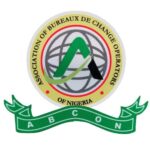
As the perennial challenge of passport booklet shortage and the resultant delay in passport applications fester, STEPHEN ANGBULU examines past remedial attempts by the Federal Government and why it may take more than a fortnight to clear the impasse.
The new Minister of Interior, Dr Olubunmi Tunji-Ojo, last week ordered the Nigeria Immigration Service to clear all backlogs passport applications in two weeks.
Handing down the order in a meeting involve the immigration and its partners, the minister said, “As I am concerned, the issue of passport is a national emergency. I keep getting emails daily from Nigerians complaining. We cannot continue like that.
“It has become an embarrassment to His Excellency, President Bola Ahmed Tinubu. I represent him here as your minister. That embarrassment is mine now. I am not changing my words. I need the backlog cleared in two weeks.”
He added, “I get daily report on enrolment from NIS on my phone. This is my best way to be in the know of the situation. Nigerians deserve the best. It is their right to own a passport if they can afford it. We will also ensure that our debts are cleared by November. My position remains that the delay in the process of obtaining the passport must end.”
While assuring the minister that the feat was achievable, the Acting Comptroller General of NIS, Carol Adepoju, said all necessary resources and measures would be deployed to expedite processing of these pending passport applications.
She said that although the number of passport enrolments as of last week was over 200,000 across the country, the agency would secure enough booklets to clear the backlog.
The minister’s directive has reminded Nigerians and close observers of several failed attempts by the Federal Government to tackle the passport applications debacle.
In early May 2021, the then-Comptroller-General of the Nigeria Immigration Service, Muhammad Babandede, convened an emergency press briefing at the service headquarters in Abuja. The Jigawa-born immigration chief had only four months remaining in the office he had occupied since 2016 and now faced a passport crisis spiraling out of control.
That morning, he announced the suspension of receiving and processing of all fresh passport applications nationwide until June 1.
He explained that the suspension would allow for clearance of all passport applications received before May 17, 2021, adding that all backlogs were expected to be cleared by May 31. Babandede said a new passport regime would take effect from the same date.
However, the service saw that the backlog was too enormous for the two-week timeline it promised and postponed the new regime date by a week. Although Babandede assured Nigerians that the more than 100,000 pending applications would be attended to before the deadline, the NIS said it produced over 230,500 passports by the end of the exercise. After that, the Minister of Interior at the time, Rauf Aregbesola, instituted a six-week processing time for all passport applications going forward.
But as posterity revealed, these efforts were only a drop in the ocean.
A hydra-headed monster
Months later, reports emerged detailing the deeply-rooted corruption in passport offices nationwide. A media investigation revealed that some Nigerians who duly followed the online passport application process waited more than 10 weeks even as their passports were nowhere in sight.
The report alleged that immigration officers conspired with the touts to fleece well-meaning Nigerians of their monies through promised shortcuts, as the usual route often took forever.
On the NIS website, it was stated that an applicant must register online. A 32-page five-year standard passport goes for N25, 000; a 64-page 5-year standard passport goes for N35, 000.
Per contra, the 64-page 10-year standard passport for adults (18 years and above) goes for N70, 000, while the 32-page 5-year official passport goes for N15, 000. However, some applicants alleged that to the touts, a passport of 32 pages would cost N45, 000, while 64 pages go for N90, 000.
A day after the May 8 report, Babandede’s successor, Jere Idris, blamed the linkage of the National Identification Number as a significant cause of delay in passport production. In a statement signed in May, he lamented that the challenge of verifying NIN before the issuance of passports plays a significant role in the passport production line “and more often than not accounts for the delays.”
These obvious causes play a role in delayed passport issuance. However, the real elephant in the room remains the lack of capacity to produce passport booklets locally, Idris told an ad-hoc committee of the House of Representatives investigating the production of passport booklets on May 10, 2023.
He blamed the policies of the Central Bank of Nigeria as one of the reasons for the scarcity of passport booklets in the country. Idris explained that significant booklet production components are sourced from overseas, hence the need for foreign exchange from the CBN. He informed the lawmakers that the lack of forex has affected the production of booklets.
“Foreign exchange regulation policy of the government and CBN’s refusal to grant access to forex for importation of the passport booklet…we generate forex from the sale of passport, but we do not have access to buy the same booklet and that is a challenge for NIS.
“The factors responsible for the scarcity of passports include the inability to set up passport producing factory in Nigeria as its production is done abroad,” he said.
With millions of Nigerians blaming the Service for delayed passport issuance, the erstwhile immigration chief turned the tables when he blamed citizens for inducing his officers. He said since the launch of the passport online appointment system, the allegations of corruption and harassment against his personnel have significantly reduced. Idris appealed to Nigerians to always stick to the rules and “stop inducing our officers.”
In mid-May, Idris sent about 80 NIS officers on trial over collecting illegal fees for issuing and renewing passports. Also, eight officers were dismissed in connection to various offences.
Barely one month after Idris’ claims before the lawmakers, his successor, Caroline Adepoju, perhaps shocked at the enormity of the challenge she met on the ground, announced a state of emergency on passport issuance in the country.
Adepoju said the challenges Nigerians faced in obtaining passports required an urgent intervention and declared a comprehensive plan of action to tackle the crisis effectively.
Perhaps corroborating the media report, which covered the Ikoyi Passport Office, the immigration chief, after visiting Lagos in June, emphasised the necessity to dismantle all man-made bottlenecks that impede the Passport application process.
Are passports challenges reforms-proof? From Babandede to Adepoju, the perennial challenge surrounding passport booklet shortages and delays in acquisition has become an unfortunate staple for citizens both within and outside the country.
While the NIS has faced several reforms, the ancient problem persists, defying solutions that seem only surface-deep. At the forefront of these persistent issues is the glaring discrepancy between the demand for passport booklets and their availability.
For decades, Nigerians have grappled with protracted delays in obtaining these crucial documents, a predicament that has fostered an environment ripe for corruption and bureaucratic bottlenecks.
In a modern world where swift global movement is almost a given, the delay in issuing passports to Nigerians at home and in the diaspora serves as a frustrating anomaly.
To fathom the depth of this challenge, one must consider the intertwining factors that contribute to the persistent delays and shortages. At its core, analysts argued that the issue stems from systemic inefficiencies, lack of transparency and a supply chain marred by inconsistent delivery.
Furthermore, Smart Technology Nigeria Limited, whose parent company, Malaysia-based IRIS Corporation, saddled with producing these booklets, has been unable to meet the skyrocketing demand. The challenge is also exacerbated by population growth and an increasing number of Nigerians seeking opportunities abroad.
Simultaneously, the diaspora’s dilemma portrays a community caught in bureaucratic red tape. The consulates and embassies, supposed to be the beacon of assistance for Nigerians abroad, often mirror the inefficiencies seen at home.
Worse, a recent report by Saturday PUNCH revealed that Nigerian foreign missions are facing a financial crisis following the delay in releasing their capital and overhead votes by the Federal Government.
When many of the 97 embassies and 12 consulates are on the verge of reneging on their financial obligations to staff members and local contractors in the coming weeks, they would lack the presence of mind to offer quality service to Nigerians.
Now more than ever, the exasperated diaspora community finds itself entangled in a web of unresponsive officials and endless waits, desperately seeking a document that should, theoretically, be straightforward to acquire.
New hope
There have been mixed feelings over whether the NIS could achieve the minister’s goal of clearing the backlog of over 200,000 passport applications in two weeks.
Having lasted through various dispensations, can the chronic challenge be resolved in a fortnight?
Deji Adeyanju is a sociopolitical activist and advocacy group leader, Concerned Nigerians. He says quick fixes cannot solve the cycle of accumulation and clearance of passport backlog, but a sustainable system that prevents such backlogs in the first place.
“If the ultimatum given by the honourable Minister is complied with, it would eradicate corruption. It’s a commendable one and whatever it is that is required, the NIS leadership and management should ensure that this does not become something done for eye service and a moment, it should become the norm.
“The application is already online and collections are done in their offices. But they can engage courier services to help with dispatch.
“Look at how many people apply for visas at the embassies every week, but they are efficient. They issue visas on a daily basis. So why can’t NIS look at this?” he said.
On the two-week timeline the Minister gave, Adeyanju said, “It is actually doable? What is difficult in printing passport booklets and getting them to the owners? If not that, there are so many loopholes in the system this should not be a problem.
“There should be no delay. There is a lot of bureaucracy that clogs the system. You see them carrying files from one office to the other. They should make the mechanism seamless.”
Taskforce begins works
Meanwhile, the Public Relations Officer of the Nigeria Immigration Service, Dr Dotun Aridegbe, told our correspondent that a task force led by a Deputy CGI is racing against time to clear the backlog. However, he said there are no booklet shortages.
“The booklets are there. The acting Comptroller-General has directed that all backlogs should be cleared. In fact, to that effect, a task force has been formed and they have started work. The task force was formed about two weeks ago.
“It is headed by the acting Deputy Comptroller-General in charge of Passport and other Travel Documents, Sa’adat Hassan,” Aridgebe stated.
Asked if the service would halt new applications to enable it clear to the backlogs, as Babandede did mid-2021, the service spokesman said, “It would be running simultaneously. The bottom line is for us to clear the backlog. The passport officers have been working day, night and weekends.”
According to him, the service has maintained the passport application appointment system introduced by the immediate past Interior Minister, Rauf Aregbesola.
“Nobody has talked about dropping anything. But for now, the NIS is working with the Minister’s directive to enable Nigerians to get their passports as and when due,” he affirmed.





